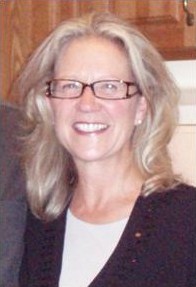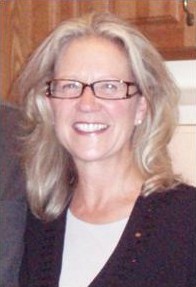 I retired after 34 years of teaching secondary choral music. It was a bit unexpected, but at the last moment, in a financial and familial sense, it became clear it was the right decision. It was painful to accept leaving the students, the program, the classroom, the profession. What does one do after 34 years of daily experiencing the impact music makes in the lives of young people; shaping their minds and hearts, while enhancing communication through the poetry of music? It was a monumental adjustment, to be sure.
I retired after 34 years of teaching secondary choral music. It was a bit unexpected, but at the last moment, in a financial and familial sense, it became clear it was the right decision. It was painful to accept leaving the students, the program, the classroom, the profession. What does one do after 34 years of daily experiencing the impact music makes in the lives of young people; shaping their minds and hearts, while enhancing communication through the poetry of music? It was a monumental adjustment, to be sure.
I was fortunate to immediately be hired by a local community choir, which possessed a rich history of performance, including European travel. At the time I was hired, the choir had recently experienced a drop in membership, due to a variety of reasons. I hoped to step in and make a positive difference in no time. I was in for a surprise!
With 34 years of teaching under my belt, having prepared many choirs that excelled in state competitions, I assumed it would be an exciting challenge to do the same with adult singers. I was enlightened early on, that working with adults requires adjustments in teaching style and organization. I had a lot to learn!
After teaching in a school stetting, where daily attendance is required, one of the greatest challenges to overcome was the fact that “real life” can get in the way of adults committing to weekly rehearsals. Getting called out of town on business, caring for ailing parents, family travel plans; these are things that play an important part in the lives of adults and cannot be ignored. Respecting the fact that these dedicated adults were already giving up every Sunday night for rehearsals, paid their annual dues, and purchased the required gown or tuxedo, I knew I needed to find a way to keep them in the group without creating tension over the fact that they might have to occasionally miss rehearsal, as well as respecting the singers who never missed. My solution was to offer once-a-month Tuesday night rehearsals, expected of those who miss more than one Sunday per concert cycle, and inviting those who may desire extra review. It has been an excellent solution! I have been fortunate that all singers have respected this plan, and many choose to attend, whether or not they have missed a Sunday!
Another adjustment was daily rehearsals vs. weekly rehearsals. It has required me to become supremely organized in rehearsal planning. Teaching high school, I always had a daily lesson plan, but being limited to weekly rehearsals required more forethought. I devised lesson plans by the minute, i.e.; 6:30-6:40 warm-ups, 6:40-7:00 mm. 35-70 of piece #1, 7:00-7:15 mm. 69-100 of piece #2, etc. I email these plans to the singers early in the week, knowing they may have only a few minutes to devote to practice time. I want them to focus on the sections we will be rehearsing the following Sunday. My additional motive, of course, was that in selecting small portions, they would also overview and internalize the piece as a whole. I often include a link to a quality You Tube performance of the piece. The following Sunday rehearsal, we stick to the schedule. This is a successful strategy that has worked well for us. It has enabled us to master a great deal of literature in small increments of rehearsal time. Rehearsals are focused and fun, and move at an exciting pace.
This past semester we had 12 rehearsals to master Carmina Burana, the Vivaldi Gloria, the Rutter Gloria and our entire holiday program, including preparation of soloists and scheduling rehearsals with orchestras and instrumental ensembles. The rehearsal strategy above came in extremely handy and truly made the difference in our success. The singers prefer to move quickly, in small but concentrated bursts of energy on any given piece or movement. This has made rehearsal time extremely productive. We utilize our full rehearsal space, moving into circles by voice part, or moving into mixed arrangement, always changing our location in the room, to get a feel for performing in various venues.
In respect of their time, I find it imperative to begin and end rehearsals exactly on time. I have also learned to include a 10 minute break for announcements, socializing, bathroom break, etc. I find singers arrive earlier and linger longer after rehearsals to visit and socialize. It keeps rehearsal time very focused.
Selecting literature has been eye-opening and educational. The immense amount of literature is overwhelming. It compares to finding literature for 5 school choirs, yet it is all for one performing group. Keeping in mind a balance of styles, genres, periods and “moods” in the programming, I am mindful to balance the vocal demands throughout the program. Although I work with an auditioned choir, they possess varying vocal abilities and experience. I must be mindful of that. It is imperative singers to leave a rehearsal or performance completely free of vocal fatigue. This influences the selection of pieces and the order of pieces in rehearsal and programming.
One wonderful advantage has been the growth and development of my conducting gestures. With a full-time professional accompanist on hand, I can be mindful of what my hands are communicating at any given moment. I practice in the mirror prior to rehearsal, assuring my gestures are effective. The beauty of having one choir a week vs. five choirs a day has allowed more time to develop my skills.
In my third year as director of the Cantata Academy Chorale of Metropolitan Detroit, I am feeling confident, organized, purposeful, appreciated, appreciative and musically fulfilled. I look forward to many years of quality music making!

